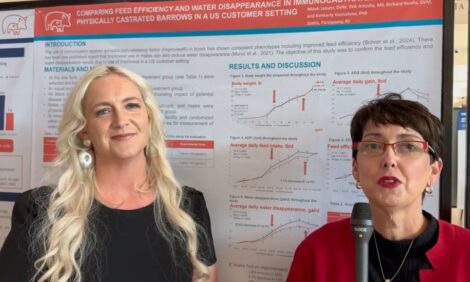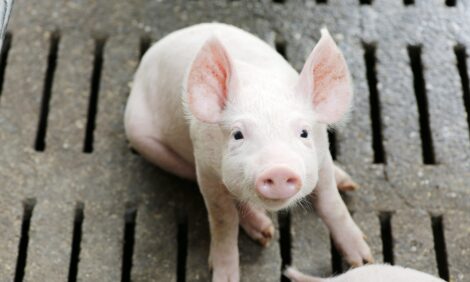



Farming - The French way!
An interesting article by Digby Scott which gives both an insight and a number of facts about farming in France that might give you pause for thought.- Home produced pigmeat now carries the obligatory label 'Viande Porcine Française'. Where quality traceable product codes are concerned, a 'Born, Reared and Slaughtered in France' label is obligatory.
- Large farm co-ops (some have over 1,000 members and the largest markets 2.5 million pigs a year) deal with supermarkets on an equal - if not slightly superior - footing. As a result farm prices have not been eroded to zero, as they have in the UK.
- Supermarkets are legally obliged to pay their suppliers within 30 days and they are under central Government pressure to peg their net profits at seven per cent.
- There is plenty of good productive land to rent, with excellent security of tenure, at between £14 and £28 per acre (but up to £50 per acre for top-quality arable land). There is also plenty of good productive land to buy, at less than £1,000 an acre - predominantly permanent pasture, but some arable and mixed farms too, if you know where to look.
- If you are under 40 and have a farming qualification you won't need any capital to start farming because the government will give you a cash gift and subsidise cheap loans at as little as two per cent. Clearing banks are the conduit for these and other loans.
For the present, over 80 per cent of French people believe farmers play a beneficial roll in protecting the countryside, 77 per cent believe farmers should continue to be subsidised and nearly everyone (94 per cent) perceives farmers to be hard working and 'courageux'. One is bound to marvel at how 20 miles of water can make so much difference.
We might quail perhaps at the enormity of the idea of upping sticks and starting a new life in a foreign country with a foreign language to master. At the very least, you would need a reliable agent to befriend and guide you - rather as you do when buying a new car from abroad. The good news is that such an animal exists.
But in case you're thinking specifically of pigs, it must be admitted this is the one big problem area. Entry restrictions are strict. If you envisage a herd of over 450 units (one slaughter pig = 1 unit, one sow = 3 units, one weaner = 0.2 units) you will be subjected to a horrifying assessment process, which may well take over a year to complete and will cost £5,000. (Though thoughts of those juicy Stabiporc cash-flow aids would no doubt see you through the darker moments).
Life becomes easier if you are interested in an extensive outdoor unit, producing meat within a quality code. This sort of operation, particularly if it is organic, is still encouraged. There are very few restrictions to entry and young farmers are given incentives. More immediately feasible options for a viable farm enterprise would include 400 sheep, or 80 suckler cows. No, these are not misprints.
And what about dairying? You might suppose you would need one million litres of expensive quota to make a living. Not so - 225,000 litres and 200 acres will do it. And you won't have to buy quota separately because it is linked to the land you buy or rent.
So how can these enterprises - which would be marginal in the UK - make a profit in farms? Because farm co-ops don't let supermarkets rip off farming, nor do French shoppers, nor does the French government. At the risk of provoking cries of 'Where's the level playing field?' I should also mention there are grants and cheap money schemes available at every turn, or so it seems to a jaundiced Englishman. And of course the farmers themselves are militant. If they perceive it's not their produce on the shelves - well you know what happens.
How much money would you need? Unless you want to buy land in the Paris basin, you can get away with paying no more than £1,000 an acre, depending upon the land's potential, it's use and the amount of milk quota attached. Not only is land cheaper, but you won't need as much of it as you would in Britain, as generally speaking farmgate prices are better. Direct contracts with supermarkets are strict, but rewarding.
If you cannot afford to buy, there is plenty of land for rent. Over the past three years the price of land has increased to its current giddy heights of an average £927 an acre. Paris businessmen have been attracted into the market, and these new city-based landlords are on the lookout for good, competent tenants.
A typical tenancy will run for nine years or 18 years and will be automatically renewed at the end of this period. A tenant can in due course pass on the tenancy to his children. The landlord can only take the farm back in hand if he or his children, suitably qualified, can show they would be able to use it far better than the tenant. If a landlord wants to sell the land he must first offer it to the tenant, who can buy it at a reduced stamp rate. If the tenant doesn't want to buy, then the new owner must offer him exactly the same terms as the previous landlord. There is also a rent ceiling imposed at local level above which a landlord is unable to go. This is to enable qualified young farmers with little capital to get on the farming ladder.
It is possible to start farming in France with zero capital if you're under 40 and you have an agricultural qualification (but don't worry, all is not lost if you are over 40 as there are other national incentives, and even more at local level). The government will give you a non-repayable capital grant of £13,500 and you'll be eligible for subsidised borrowing at 2 per cent. There will probably be some regional aids as well. Mature (late-entry) farmers (over 40) are encouraged with free agricultural training and re-education, investment assistance, and, similar to the young farmers, a preferential access to extra quota.
A bright UK farm manager (over 40), and his wife, had £100,000 of capital, which was insufficient to get on the farming ladder in Britain. A specialist agent showed them a farm of 247 acres of which 197 acres was IACS land. The farm came complete with 200,000 litres of dairy quota, cows and machinery and would cost £25 an acre to rent, with a further rent of £100 a month for the farmhouse. He took them to the local bank and three-quarters of an hour later they emerged with a firm offer of a capital loan of £90,000 to buy the cattle, machinery and some farm buildings and £30,000 of working capital - all at 4%.
The farm transmission grant rewards a departing farmer at 60 years of age if he quits the farm for a non-related qualified young farmer. Grants like this stem from the FEOGA budget. This funding is not available in Britain as successive UK governments refuse to match the funding coming from Brussels - which is why France receives 17.5% of the annual €4.4 billion (£2.9 billion) budget, the UK only 3.5%.
Problems for Brits? There's a high divorce rate as one of the couple will usually have come to please the other, and consequently misses family and friends, and goes home. There are some dodgy agents about, who might steer you wrong. Social security payments run at 43% of income.
If you want to know more, email Digby or see the August issue of Pig World Magazine. You can also visit the Pig World web site.






